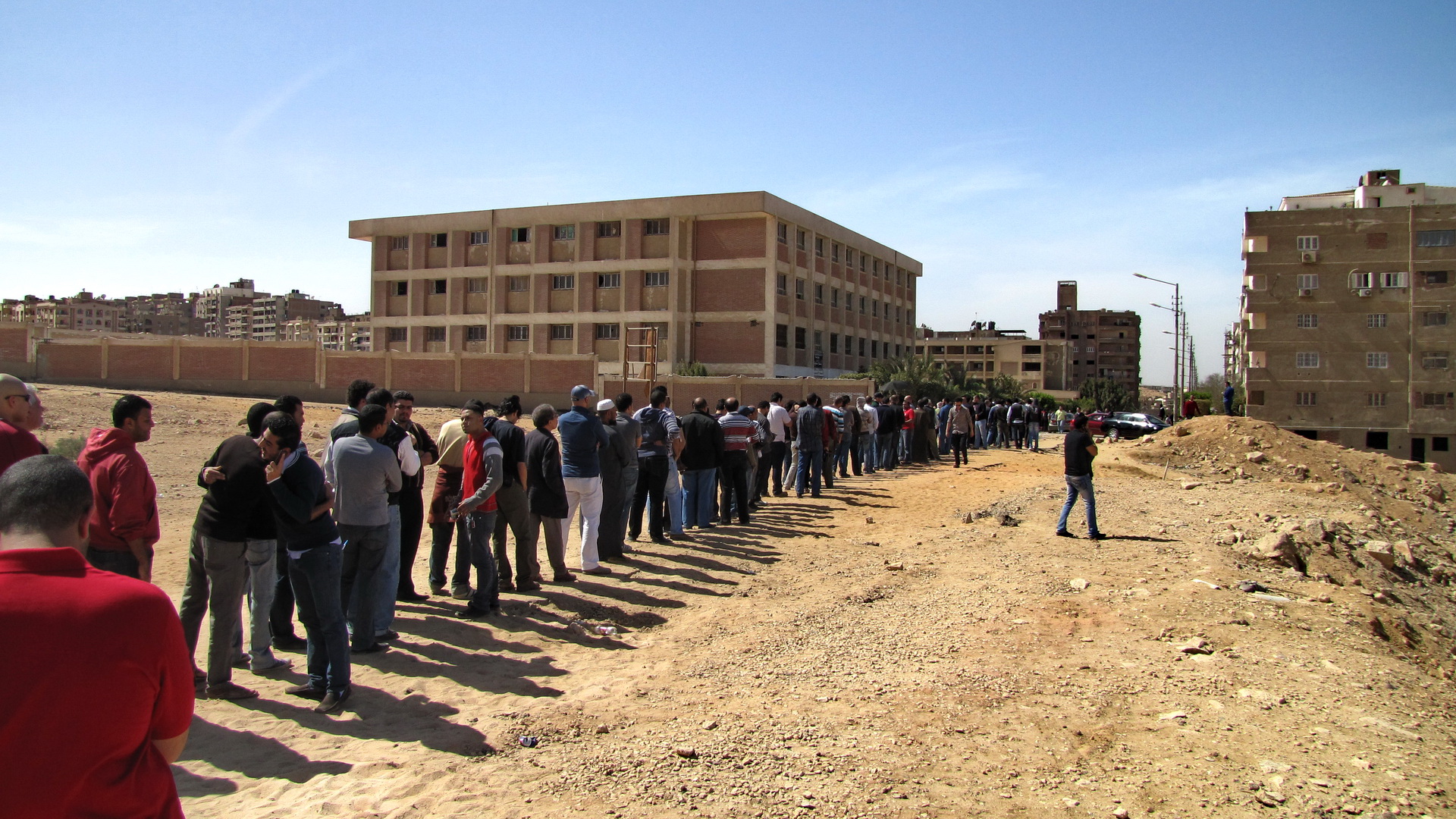Joe Derdzinski is a Senior Associate with the Security Governance Group, and a Visiting Associate Professor of Political Science at Colorado College.
This past week I had the opportunity to participate in an international observer mission funded by USAID and implemented by Democracy International, a DC-based international development firm. The mission was established for Egypt’s constitutional referendum, which took place over two days. As an observer (which has a different mandate than a monitor), I was posted in Assyut, a city on the Nile about 200 miles south of Cairo. Working with a partner, we were tasked with visiting polling stations in four precincts surrounding Assyut to assess how closely the polling stations adhered to the standards developed by the Egyptian electoral commission. Beginning with the opening procedures on the first day, through the final vote tally the following evening, we observed a total of 72 voting stations. There were no notable anomalies.
This constitution took a vastly different direction than its immediate predecessor, which led to Mr. Morsi’s election in June 2012, and subsequent ouster. Of note for security governance, this new constitution – approved by an astonishing 98% of voters – according to the Economist:
It will ensure the army’s independence from civilian oversight, and give it final say in the selection of the country’s defense minister. It also permits the ongoing trials of civilians within military courts. The vote itself will also signal to General Sisi whether or not officially he should become a presidential candidate, as it measures the public mood.
It was clear, at least from my very ground-level perspective, supported by the tremendous number of police and military personnel present at each station, that the military wanted the referendum to go without incident. It did.
Egypt points to the great difficulty of distancing the military and other security actors from politics in general, but specifically in cases where, during the ancien regime, they held tremendous sway in politics, society, and the economy. The break from authoritarianism, followed by elections, is clearly foundational for subsequent democratic potential. However, the practice of democracy, including the subordination of the military to civilian control, clearly necessitates more than these. Developing and implementing a constitution remains an obvious requirement. However, the past few days’ political violence surrounding the third anniversary of the fall of the Mubarak regime and the subsequent crackdown point to the delicate environment that typifies transitional states. Egypt seems to be the rule, not the exception, in terms of the pitfalls in the democratic transition of recent decades.
Developing a relationship between security elites and civilians consistent with liberal governance has clearly been put on hold. Besides the codified privilege the military will enjoy under this new constitution, other factors will likely make the transition to a more liberal security governance scheme more difficult. Chief among them is the current situation of insecurity, giving the security services far more operational latitude. Moreover, the security services enjoy great popular and elite support. Last, potential opponents within civil society are themselves unwilling to provide a check on the security sector for fear of reprisal. In total, the current environment is not the most fertile for democratic security governance.
That said, I believe the military’s return to power and the development of a constitution favorable to the military does not necessarily undermine the longer-term democratic project. Egypt enjoys many societal factors that other states do not: a sizeable, well-educated core; a communications infrastructure that can foster rapid and open exchange of information and ideas; strong support (and critique) from long-term Western partners; and most important, growing support for liberal governance that includes a privileged status for security actors, but nonetheless for a democracy that incorporates the best models available internationally. If my interactions with Egyptians themselves are an indication, I am quite hopeful for their country’s political future.
Tags: Constitutional Referendum, Egypt






 Visit the Centre for
Visit the Centre for